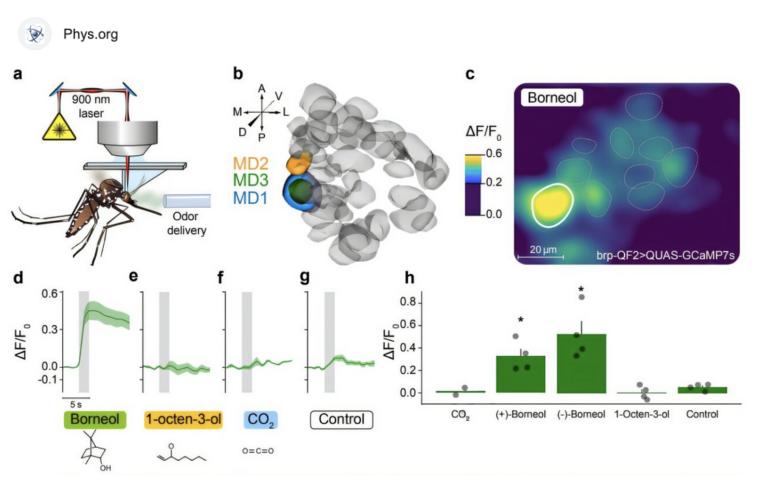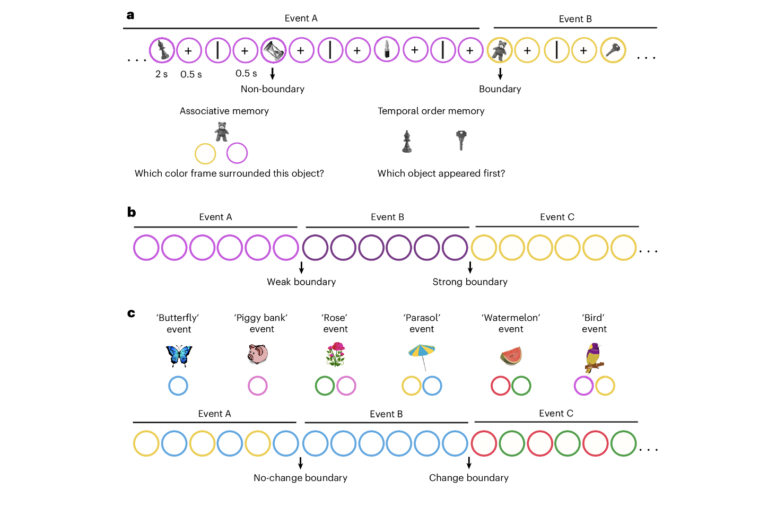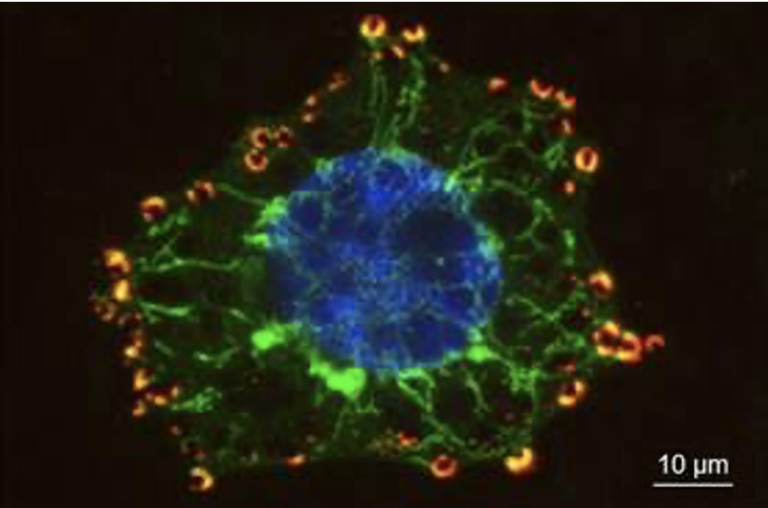Rabin Medical Center (Israël) : une cornée artificielle pour recouvrer la vue

[:fr]
RTflash. Un homme de 78 ans dont la cornée endommagée provoquait une cécité progressive a retrouvé la vue suite à l’implantation d’une cornée artificielle dans la paroi de son œil droit. L’opération a été menée par le Professeur Irit Bahar, directrice du département d’ophtalmologie au Rabin Medical Center en Israël. La cornée artificielle, baptisée CorNeat KPro, a été conçue et fabriquée par la start-up israélienne CorNeat Vision, spécialisée dans les implants biomimétiques.

Le CorNeat KPro est entièrement synthétique et ne nécessite donc pas le tissu d’un donneur. L’implant est qualifié par l’entreprise de « fourmilière » pour les fibroblastes, les cellules qui synthétisent la matrice extracellulaire, ce qui permet d’obtenir une intégration tissulaire progressive.
Cette opération marque une nouvelle étape dans le parcours de cette jeune pousse car il s’agit du premier test clinique sur l’Homme. Auparavant, seuls des animaux avaient reçu la cornée artificielle. « Il s’agit d’une étape extrêmement importante pour CorNeat Vision, clé de notre voyage pour permettre aux personnes du monde entier de profiter pleinement de leur potentiel de vision », s’est réjoui Gilad Litvin, cofondateur de CorNeat Vision.
Traditionnellement, pour les patients atteints de cécité cornéenne, le dernier recours est la mise en place d’une kératoprothèse. Il s’agit d’une greffe de la cornée. Bien qu’ayant un taux élevé de succès, cette opération est compliquée car il y a une pénurie de dons (une seule cornée serait disponible pour 70 personnes). Les personnes attendent donc plusieurs années avant d’être opérées. Or, la cécité même partielle engendre de nombreuses complications au quotidien.
C’est la raison pour laquelle CorNeat Vision a créé une cornée entièrement synthétique. Elle se place sous la conjonctive, la partie blanche de l’œil, un site riche en fibroblastes, ce qui permet une guérison rapide. Dans les implantations animales, le lien entre le dispositif et le tissu s’est avéré solide et durable, note la société israélienne. A noter que les risques de rejet sont dans tous les cas rares car la cornée n’est pas un tissu vascularisé.
En outre, l’implant est conçu pour faciliter l’accès à la chambre antérieure – c’est-à-dire l’espace entre l’iris et la surface la plus interne de la cornée – après l’implantation. Tout au long de la vie du patient, les médecins, si besoin, pourront facilement y accéder, ce qui n’est pas toujours le cas avec la kératoprothèse.
Les médecins du Rabin Medical Center ont été surpris par la simplicité d’implantation de la cornée artificielle. Contrairement aux procédures actuelles nécessitant une suture délicate du tissu du donneur sur la cornée native du patient, le CorNeat KPro s’insère dans la cornée trépanée du patient et est ensuite suturée à l’œil. De plus, l’opération minimise le temps d’exposition de l’intérieur de l’œil au monde extérieur à moins d’une minute, réduisant les risques associés (infection…).
Article rédigé par Georges Simmonds pour RT Flash
[:en]
The CorNeat KPro, the first artificial cornea which completely integrates with the eye wall with no reliance on donor tissue, was successfully implanted in a human. The surgery was performed on a bilaterally blind, 78-year-old male at Rabin Medical Center, Israel, by Professor Irit Bahar, Director of the Ophthalmology Department. Upon removal of bandages, the CorNeat KPro immediately enabled the patient to read text and recognize family members. This exciting moment can be viewed in the following link.
Professor Irit Bahar commented: « The surgical procedure was straight forward and the result exceeded all of our expectations. The moment we took off the bandages was an emotional and significant moment. Moments like these are the fulfillment of our calling as doctors. We are proud of being at the forefront of this exciting and meaningful project which will undoubtedly impact the lives of millions.«
Dr. Gilad Litvin, CorNeat Vision’s Co-Founder, Chief Medical Officer, and the inventor of the CorNeat KPro, noted: « Unveiling this first implanted eye and being in that room, in that moment, was surreal. After years of hard work, seeing a colleague implant the CorNeat KPro with ease and witnessing a fellow human being regain his sight the following day was electrifying and emotionally moving, there were a lot of tears in the room. This is an extremely important milestone for CorNeat Vision, key in our journey to enable people around the world to fully enjoy their vision potential. I am grateful and honored to work with an outstanding group of people whose hard work, diligence and creativity, made this moment possible. »
Almog Aley-Raz, CorNeat Vision’s Co-Founder, Chief Executive Officer & VP R&D, noted: « The CorNeat KPro’s first-in-human implantation is just the first step in a multi-national clinical trial, geared toward attaining CE Mark, FDA Clearance and China NMPA approval. A total of 10 patients are approved for the trial at Rabin Medical Center in Israel with two additional sites planned to open this January in Canada and six others at different stages in the approval process in France, the US, and the Netherlands. Our first trial includes blind patients who are not suitable candidates for- or have failed one or more corneal transplantations. Given the exceptional visual performance of our device, the expected healing time and retention, and the fact that it cannot carry disease, we plan to initiate a second study later this year with broader indications to approve our artificial cornea as a first line treatment, displacing the use of donor tissue used in full thickness corneal transplantations. »
The CorNeat KPro implant is designed to replace deformed, scarred or opacified corneas and is expected to fully and immediately rehabilitate the vision of corneally blind patients following a relatively simple implantation procedure. The CorNeat KPro will transform global corneal therapy and provide, for the first time, a reliable and scalable synthetic substitute to the human cornea, significantly impacting the lives of millions of people with cornea-related visual impairments and blindness.
Click HERE to view an animated implantation.
CorNeat Vision is a clinical-stage, biomimetic implant technology company. CorNeat Vision’s platform is a 100% synthetic, non-degradable porous material, which mimics the micro-structure of the Extracellular Matrix (ECM) – the natural biological collagen mesh providing structural and biochemical support to surrounding cells. When implanted, this material stimulates cellular proliferation, leading to progressive tissue integration. This fully validated in-vivo platform enables the bio-mechanical integration of permanent implants with live tissue and does not trigger an adverse immune system response.
Click HERE to learn more.
CorNeat Vision will be featured as an Innovator’s Pitch Challenge Finalist at the RESI Conference, during JPM Week, taking place January 11-13. You are welcome to view our pitch and vote for us!
[:]







